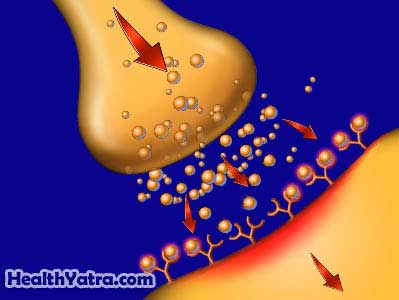Definition
Cocaine use disorder is when the use of cocaine harms a person’s health or social functioning, or when a person becomes dependent on cocaine. The powdered form of cocaine can be snorted or dissolved in water and injected. Crack is cocaine in a rock crystal form. It can be heated so its vapors can be smoked.
Cocaine use disorder is treatable. But, it takes hard work. Talk to your doctor if you think you have this condition.
Causes
Cocaine stimulates the brain to release large amounts of the hormone dopamine. Dopamine results in the euphoria commonly reported by cocaine abusers. As a person continues to use cocaine, a tolerance is developed. This means that higher doses and more frequent use are needed to maintain the euphoria.

When a cocaine user stops using abruptly, a crash or withdrawal occurs. This results in an extremely strong craving for more cocaine. It also results in fatigue, loss of pleasure in life, depression, anxiety, irritability, and sometimes paranoia. These withdrawal symptoms often prompt the user to seek more cocaine.
Risk Factors
Factors that increase your chances of getting cocaine use disorder include:
- Age: 18-25
- Sex: males
Symptoms
Symptoms associated with cocaine use disorder include:
- Short-term effects include:
- Euphoria
- Increase in energy
- Excessive talking
- Being mentally alert
- Decreased need for food and sleep
- Dilated pupils
- Increased temperature
- Increased heart rate
- Increased blood pressure
- Bizarre, erratic, or violent behavior
- Vertigo
- Muscle twitches
- Paranoia
- Restlessness, irritability, and anxiety
- Heart attack
- Seizures
- Sudden death
- Long-term effects include:
- Cravings that can’t be controlled or predicted
- Increased tolerance
- Increased dosing
- Use of cocaine in a binge
- Increased irritability, restlessness, and paranoia
- Paranoid psychosis
- Hearing sounds that aren’t there
- Medical complications include:
- Heart rhythm abnormalities
- Heart attack
- Chest pain
- Respiratory failure
- Stroke
- Seizure
- Headache
- Abdominal pain
- Nausea
Diagnosis
Your doctor will ask about your symptoms and medical history. A physical exam will be done. The doctor will ask specific questions about your cocaine use, including how long you have been using the drug and how often.
Treatment
Talk with your doctor about the best treatment plan for you. Treatment programs may be inpatient or outpatient and may:
- Require that you have already stopped using cocaine
- Involve a detoxification program
Medications
There are currently no medicines to specifically treat cocaine use disorder. Treatment with medicine focuses on the symptoms of euphoria and craving. Medicines that have shown some promise include:
- Modafinil
- N-acetylcysteine
- Topiramate
- Disulfiram
- Agonist replacement therapy
- Baclofen
- Antidepressants—may be helpful for people in the early stages of stopping cocaine use
Behavioral Therapy
Behavioral therapies to help people quit using cocaine are often the only available, effective treatment for cocaine use disorder. Therapies include contingency management. With this program, people receive positive rewards for staying in treatment and remaining cocaine-free. Also, cognitive behavioral therapy helps people to learn how to abstain and remain abstinent from cocaine.
Rehabilitation Programs
In rehab programs, people with cocaine use disorder stay in a controlled environment for 6-12 months. During this time, they may receive vocational rehab and other support to prepare them to return to society.
Prevention
The best way to prevent cocaine use disorder is to never use cocaine. It is highly addictive.
